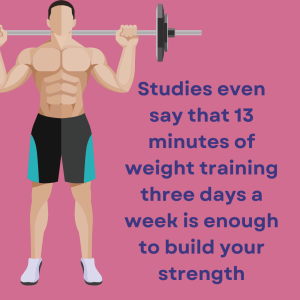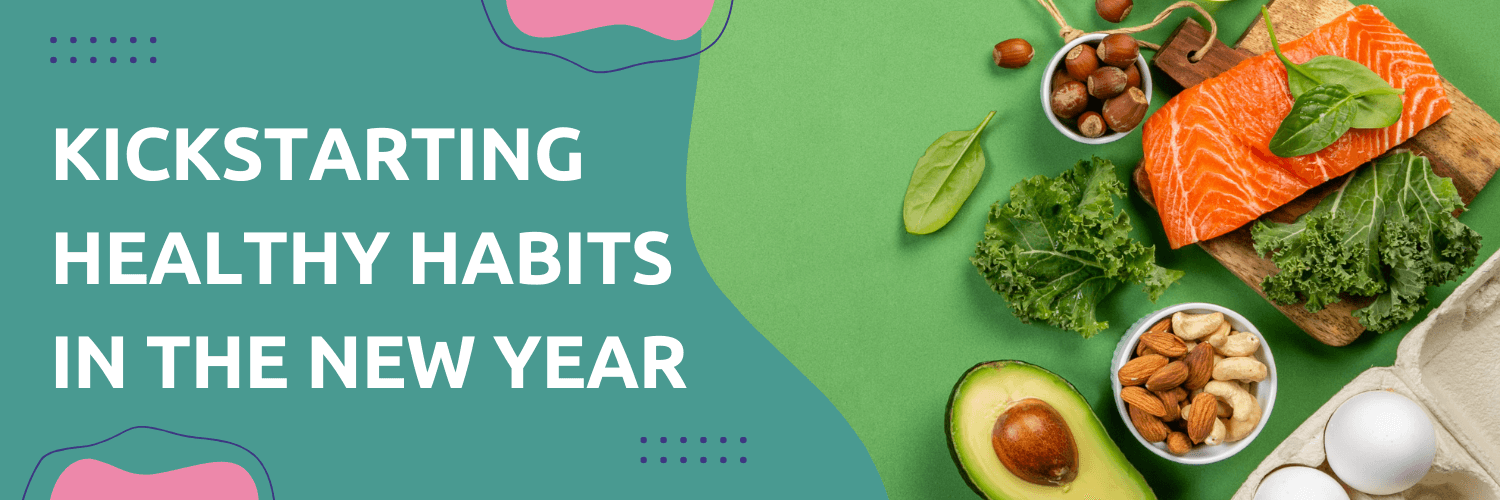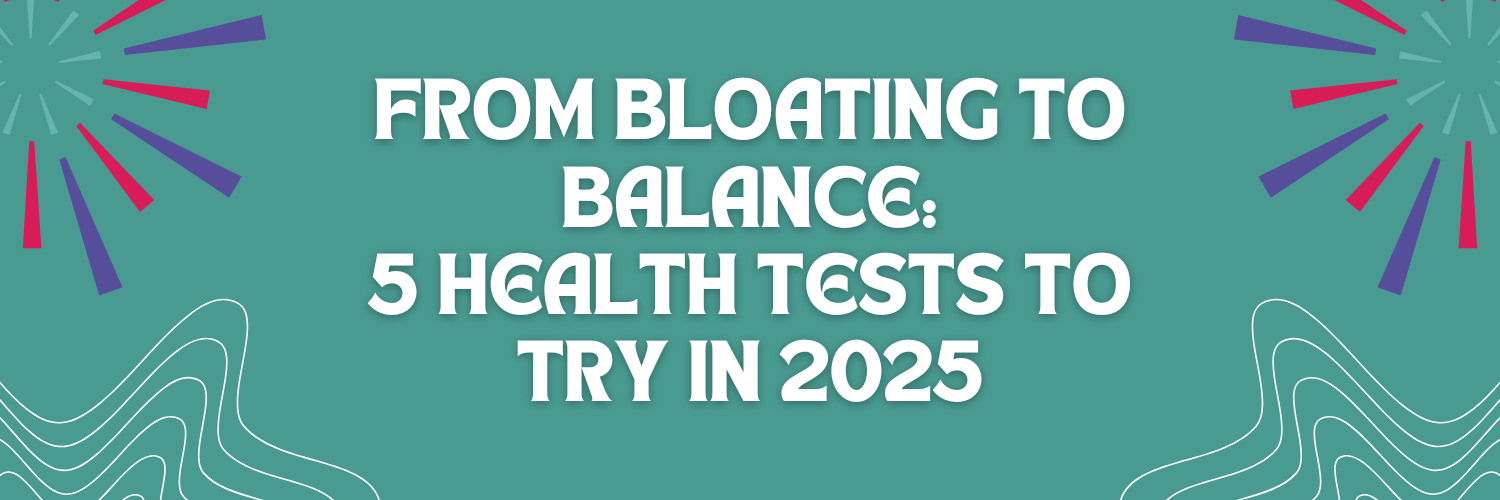A new year gives you a new chance to set new goals and resolutions. Most people create their New Year’s resolutions at the beginning of the year. Even though some people don’t follow through with the new habits, those who do, end up changing their lives that year because of consistency.
At the beginning of the year, it’s a nice chance for you to make healthy lifestyle changes you’d love to accomplish. By incorporating healthy habits into your New Year’s resolution, you’re making a conscious decision to improve your health and well-being.
When we get on a healthy diet resolution, especially those short-term diet fads that promise to help us lose a few pounds within a few weeks, it’s common to be excited about that. However, those don’t last for long because even though you’ll lose the pounds you wanted to, you’ll regain it all within a few weeks or months once you return to your usual diet.
These healthy habits in the new year will help you create new routines that will be sustainable so you can live healthily. Here are some healthy habits that you can resolve to add to your New Year’s resolution.
Change up your dessert.
Often, we consume a lot of sugar in the name of the dessert. If you have a sweet tooth, you should start the new year by changing the types of desserts you consume in your home. You can start by switching your sweet treats with healthier alternatives like nuts and seeds.
If you want something entirely sweet, you can alternatively eat a few dates instead of something that contains added sugars. You can also mix up chocolate with non-sweet stuff like nuts and seeds to fulfil your sugar craving but still keep it healthy.
Excessive intake of added sugar can result in conditions like high cholesterol, high blood pressure, and other health concerns. You can also choose to take sweet fruits instead of your desserts containing added sugars.
Unlike added sugar, eating fruits has a different result. That is because fruits have fibre, which regulates the glucose level released into the body. It does this by releasing glucose slowly throughout the day. This then doesn’t cause insulin spikes.
Adjust your posture
One of the more common healthy habits in the New Year people like to adopt is getting posture. Most people have jobs where they sit at a desk all day long. If you’re not careful, you can end up sitting in a way that puts pressure on your spine, causing pain in your lower back, neck, and shoulder. However, when you sit bending forwards, being told to sit upright can cause you to sit in a manner that causes you to suck your stomach and stick out your chest. This can cause more misalignment and stress.
To sit better, start by popping out your butt, as you have a tail and don’t want to sit on it. This posture helps you to stack your spine vertebrae by vertebrae on top of each other. When sitting, ensure that you adjust your chair to sit with both feet on the ground, and your thighs parallel to the ground. This ensures you have a good posture and you’re no longer hurting your spine, neck and shoulders.
Get medical checks
It’s important to get regularly checked as it helps you take preventive steps regarding your health. Annual checks help you identify illnesses before they progress too far. You can visit your healthcare provider for annual checkups to ensure everything is alright.
Additionally, we assume our digestive symptoms, which often indicate that there’s a problem either with something we’ve eaten or underlying digestive conditions. However, if you often suffer from digestive symptoms after eating specific food, you need to take an Allergy and Intolerance Test to know which foods you need to eliminate from your diet.
A healthy diet should not make you feel ill. Experiencing digestive symptoms after meals isn’t normal, and you need to test for food allergies and intolerances so you can adjust your diet accordingly.
Create a bedtime routine.
Most people need more sleep every night. While it can be impossible to sleep in because of work, you can control the time you get in bed. You can set a reminder of an hour before you need to sleep. When your alarm goes off, you should put away all electronics, including your phone and start your evening routine.
The blue light on your devices can delay the release of melatonin, making it hard for you to fall asleep. Once your alarm goes off, you can dim your lights and do activities that help you wind down. These include taking a warm shower; you can stretch your body and even meditate if you always do that.
Once you’ve established this sleep routine, your body will get used to it. Even though sleep may not be easy the first few times since you’re used to staying up late, don’t give in to your devices. Within a few days of following this routine, your body will automatically know it’s time to sleep when you start your winding down routine.
Sufficient sleep reduces stress, helps you maintain a healthy weight and boosts your mental health. Every night, create an environment that helps you get the sleep you need. Your body will thank of you the following day when you’re feeling rejuvenated, and the idea of getting up in the morning isn’t repulsive.
Be mindful
Be mindful of every part of your life, including your meals. Instead of dieting, the only way to eat what you need and not overeat is by practising mindfulness eating. Mindfulness consists of noticing the food you’re putting in your mouth, why you’re doing so, and how it makes you feel. This also includes being present when eating to prevent binge eating. You can do this by focusing only on your food during dining time.
Switch off your TV and put your phone away when eating so you can be present and prevent yourself from overeating. Learn how to know when you’re hungry and distinguish hunger from boredom. Ground yourself within the present moment and don’t just eat your food, but rather really eat what you are chewing and observe your body to look for signs of satisfaction so you can stop eating.
Mindfulness also means you are taking a break now and then and checking in with yourself. Ask yourself how you feel. This can help you understand yourself better and know your triggers, helping you improve your mental health.
Exercise
Probably the most popular healthy habits in the New Year is exercising. For you to maintain a healthy weight, you should exercise for about 30 minutes daily, five days a week. This workout should be a moderate-intensity physical activity. However, if you haven’t done physical workouts in a long time, don’t let this time intimidate you because you can start with 10 minutes daily and then amp the minutes up with time.
Studies even say that 13 minutes of weight training three days a week is enough to build your strength. Another study shows that even running for five minutes daily is sufficient to boost your cardiovascular health.
If you can’t do either, you can at least stand for most of your day. You can do this by getting yourself a desk that allows you to stand while you work. There are many you can add exercise into your daily routine. It’s you who has to choose which way suits you. If you can walk daily, that would also be good for your health.
Indulge in a healthy, balanced diet.
Exercising a lot and still eating an unhealthy diet does nothing to improve your health. A healthy diet consists of lots of dietary fibre, which is present in fruits and vegetables. These also offer lots of vitamins, minerals and other nutrients that your body needs.
Often, we have in mind specific foods that we should eat at different times, and this causes us to have insufficient levels of different macronutrients and micronutrients. However, if you add a bit of vegetables to your breakfast, it will ensure you consume more vegetables daily.
You can do this by adding a bit of spinach to your eggs or adding carrots to your oatmeal. You don’t have to consume breakfast cereals daily without a change in routine.
Find ways to include additional fruits and vegetables in your daily meals. These will help you consume more nutrients and nutritional fibre, which will boost your health.
Walk when you can
If you have time and the place you need to go is a mile away or less, intend to walk there instead of driving. By doing this, you’ll be getting in more exercise and fresh air. Walking boosts one’s mood and helps in reducing stress.
If you can take a walk in nature, this is better because you can intend to be present with yourself, which will help boost your mental health. Walking can boost your cardiovascular health and reduce your risk of chronic illnesses. It will also help you burn some calories and clear your head.
How to follow through with your healthy habits in the new year
Creating new healthy habits takes a lot of time and energy. To succeed in this, you must ensure that your new habits fit in with your lifestyle. To ensure you succeed;
- Be specific: To achieve your goals, you must list down the exact results you want at the end of a specific habit you’re setting. For example, instead of saying you want to exercise more in the new year, you can decide how many days a week you want to exercise and the type of exercise you’ll follow.
- Be realistic: When setting goals, don’t set yourself up for failure by setting up impossible goals. For example, if you want to lose weight, create a plan that includes losing a healthy amount of weight weekly. Having a goal that includes losing 10 pounds per week isn’t realistic, and you’ll end up being discouraged. If you hate vegetables, switching up your diet to include mostly vegetables will result in you going back to your unhealthy diet. Instead, gradually add the vegetables as you find out how you like to cook them and which ones you enjoy best.
- Track your progress: If you’ve been meaning to eat healthier, track how much you’ve stopped eating junk food and how many healthy foods you’ve been making at home.
- Leave perfection out of the picture: You don’t have to quit everything all at once. For example, if you intend to consume less alcohol, drinking once a week will give you something to look forward to as a result of your staying away from liquor. If you’re eating healthier, having some of your favourite unhealthy snacks once in a while will help you keep eating healthy foods. Just keep increasing your healthy food consumption and reducing your junk food consumption.
- Celebrate your milestones: Reward yourself every time you reach a real milestone, no matter how small. Habits are built through consistency, and you should be proud of how consistent you’ve been to be able to accomplish your milestones.
Final thoughts
Making a New Year resolution that helps you accomplish some healthy habits is a great goal to have. The above tips can help you set your New Year’s goals and stick to them throughout the year. If you want something badly enough, you’ll have it. Your first step is to check your health by taking an Allergy and Intolerance Test so that if you’re switching up your diet, you’ll know which foods aren’t serving you and which ones to keep.






